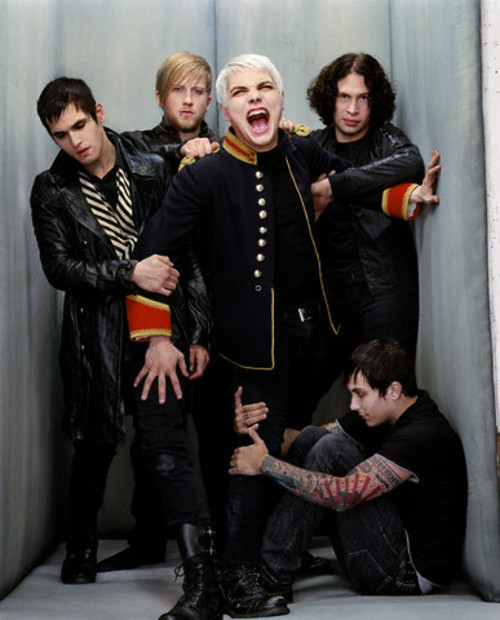

No wreckers of civilisation, MCR spoke directly to the feelings of depression and alienation experienced by vast numbers of young people. The last song on our album states: ‘I am not afraid to keep on living’ – a sentiment that embodies the band’s position on hardships we all face as human beings.” “Our lyrics are about finding the strength to keep living through pain and hard times.
They said that The Black Parade in particular had “hope and courage” as a message. “We have always made it one of our missions through our actions to provide comfort, support, and solace to our fans,” they wrote at the time, while noting they were “anti-violence and anti-suicide”. The emo-blaming reaction of the media drew outrage, and spawned protests from fans as well as a firm response from the band. “When you saw the marches, a lot of people were shouting very clearly the Mexican words or insults people use for gay,” Grillo said. Speaking to NPR, journalist Ioan Grillo attributed the conflict to class differences and homophobia. The following year, violence against emo fans spilled over into Mexico, where three teenagers were severely beaten in Queretaro, north of Mexico City. In 2007, hard rock and MCR fan Sophie Lancaster was beaten to death by a mob of strangers in Bacup, Lancashire, targeted, police said, because she was dressed in a gothic style. Photograph: Jenny Matthews/AlamyĪrguably, the vilification of the genre put fans at risk. In his inquest into Bond’s death, the coroner Roger Sykes concluded: “the emo overtones concerning death and associating it with glamour I find very disturbing”.Ī demonstration by fans of the band after the Daily Mail said the group encouraged suicidal thinking. Coverage of her death zeroed in on her love of emo music one Mail Online headline screamed “Why no child is safe from the sinister cult of emo”, while another article on the same site called MCR a “suicide cult” band. In 2008, MCR were linked in the news to 13-year-old Kent girl Hannah Bond, a fan who died by suicide. But parts of the media scapegoated this side of the band as the cause, not a symptom, of a burgeoning youth mental health crisis. “The triumph of the human spirit over darkness was something that was kind of built into the DNA of the band from the beginning,” Way said last year. Way’s emotionally vulnerable, often raw lyrics made no secret of tough times. MCR also faced unique pressures on top of the toll of visibility: as the world’s highest profile emo band, they were at best frequently misunderstood, even dangerously misconstrued, and became the subject of a moral panic worthy of the days of Mary Whitehouse. “I needed the last seven or eight years to process that experience,” he said last year. In the years since, Way has been open about how difficult fame was for him to navigate, describing it as “extremely traumatic”, and has stressed the importance of therapy to his wellbeing. To the shock of many, the group called it quits in 2013. MCR’s final album to date, 2010’s Danger Days: The True Lives of the Fabulous Killjoys, was yet another departure, which drew on bratty punk, swaggering 80s rock and new wave’s colourful keyboards. Driven by the UK No 1 hit Welcome to the Black Parade, a multi-part epic in the spirit of Queen’s Bohemian Rhapsody, the band embraced Bowie-calibre shapeshifting, Pink Floyd’s grandeur and glam rock’s sledgehammer riffs on 2006’s The Black Parade.

In the wake of that album’s success, My Chemical Romance (MCR) swiftly shifted gear once again. Their music took a darker turn on 2004’s breakthrough, Three Cheers for Sweet Revenge, an album influenced by the Cure’s gloomiest moments and the gothic-tinged punk fury of Misfits and the Damned. Led by vocalist Gerard Way, a talented comic artist who grew up listening to punk, metal and Britpop, they started off scrapping in New Jersey’s early 00s basement-venue hardcore circuit alongside bands such as Thursday. The difference is that back then, they were unlikely superstars, misfits who inadvertently infiltrated the mainstream – now, they return to a pop cultural landscape they helped to define. It’s not an unusual state of affairs: before their 2013 breakup, the US four-piece frequently headlined arenas and festivals. W hen My Chemical Romance announced their reunion tour in early 2020 – the band’s first extended spell on the road in nearly a decade – they promptly sold out three nights this month at Milton Keynes Stadium (30,000 seats) and shifted 228,000 tickets for their North American tour in less than seven hours.


 0 kommentar(er)
0 kommentar(er)
